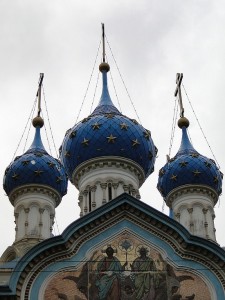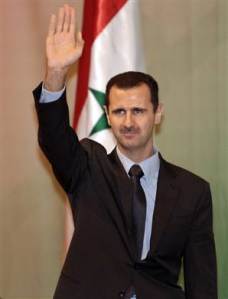Recent polls cite the growing “nones” in American society, those who profess to have no religious preference. Judging by the declining numbers in established churches in much of Europe, religion appears less and less important in all Western countries. At the same time, recent revolutions in the Middle East have led to religiously affiliated governments. In some sense, the “nones’ of the West are balanced against the “rest” in a new array.
The current movie Argo pinpoints a beginning to this sea change. The movie is set in 1979 during the Iranian revolution. The revolution removed power from Iran’s secular leaders, including the Shah, and bestowed it on religious ones. The United States had supported the Shah and allowed him into the United States for medical treatment. In protest, Iranian students stormed the U.S. Embassy and took hostages.
Few at that time took seriously the notion of a revolution propelled by religion. Gary Sick, in his detailed book about that time, All Fall Down, includes a section on “Religion and Revolution.” He states: “We are all prisoners of our own cultural assumptions, more than we care to admit . . . the notion of a theocratic state seemed so unlikely as to be absurd.”
Since that time, religious movements have expanded in Africa and South America. They have increased in Asia, even in Communist China. In Russia, straddling the divide between Europe and Asia, the Orthodox Church realizes growing influence . The fiery conflicts in the Middle East, so prevalent in news reports, are part of this worldwide rethinking of secular and religious.
We are not seeing a clash so often between religions in the world today (though that certainly happens) as much as we are seeing a clash between the religious and the not religious, the rest and the nones.


 The religious leaders of the Russian Orthodox church appeared outraged at the women’s actions and called their performance in the church part of an assault “by enemy forces.” Finally, after accusing the young women and their supporters of sacrilegious acts, they called on the court to show mercy.
The religious leaders of the Russian Orthodox church appeared outraged at the women’s actions and called their performance in the church part of an assault “by enemy forces.” Finally, after accusing the young women and their supporters of sacrilegious acts, they called on the court to show mercy. The situation has improved for Christians of the Orthodox persuasion. In fact, Russian President Vladimir Putin stands accused of using the Russian Orthodox church as a means of bolstering his less than democratic regime. Some Russians are concerned by the power the church appears to be gaining in Putin’s government. Reports suggest that the church’s influence may be one reason for Russia’s support of the bloody Assad regime in Syria.
The situation has improved for Christians of the Orthodox persuasion. In fact, Russian President Vladimir Putin stands accused of using the Russian Orthodox church as a means of bolstering his less than democratic regime. Some Russians are concerned by the power the church appears to be gaining in Putin’s government. Reports suggest that the church’s influence may be one reason for Russia’s support of the bloody Assad regime in Syria. Syria is Russia’s remaining ally in the Middle East and hosts a Russian naval base. The church, rightly, is concerned about the fate of their fellow Orthodox believers in Syria should the Assad regime fall and be replaced by a possibly Islamist government. However, to suggest that Assad should be allowed to slaughter innocent civilians so that Christians might—possibly—be better protected, seems contrary to Jesus’ teachings, to say the least.
Syria is Russia’s remaining ally in the Middle East and hosts a Russian naval base. The church, rightly, is concerned about the fate of their fellow Orthodox believers in Syria should the Assad regime fall and be replaced by a possibly Islamist government. However, to suggest that Assad should be allowed to slaughter innocent civilians so that Christians might—possibly—be better protected, seems contrary to Jesus’ teachings, to say the least.